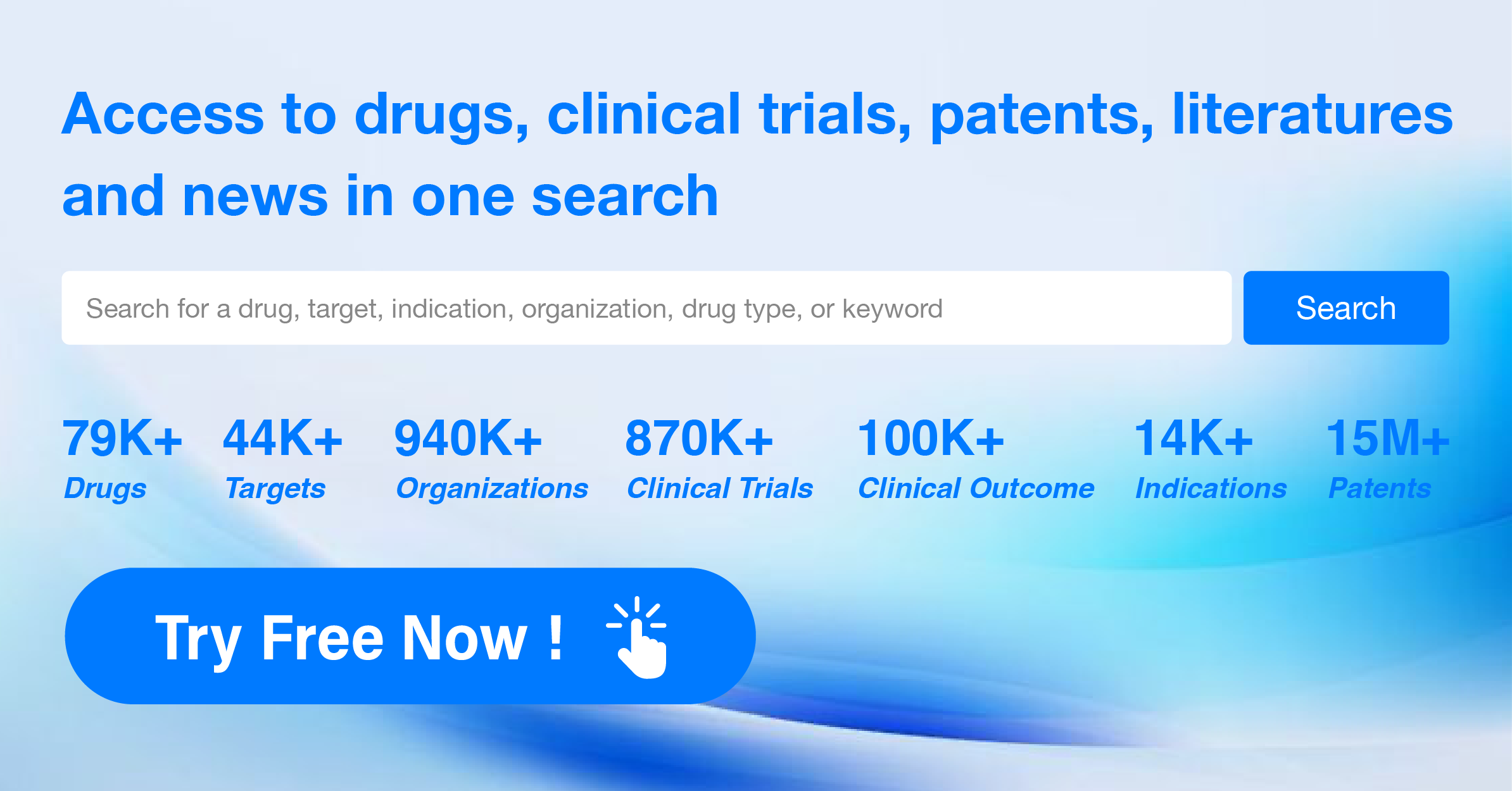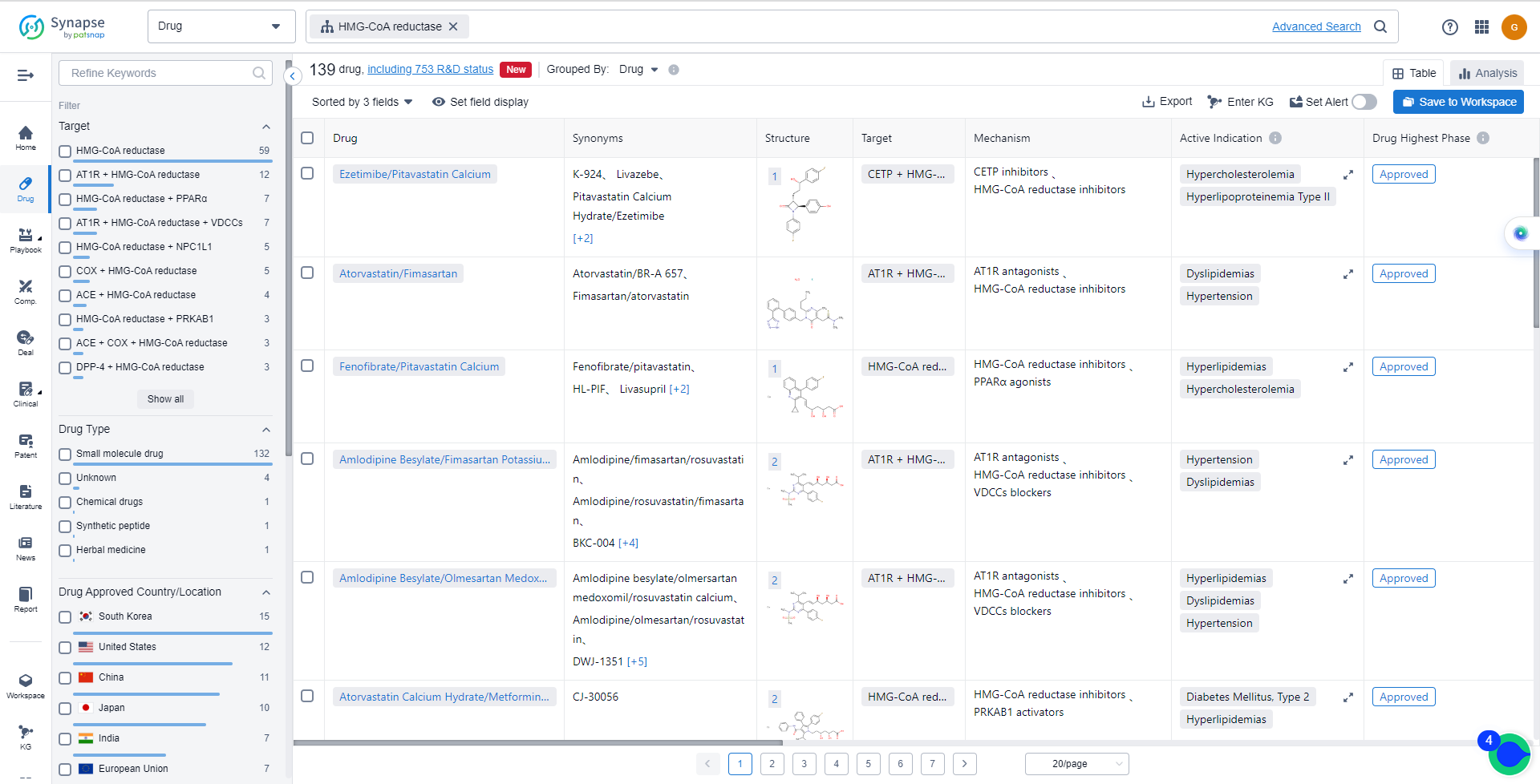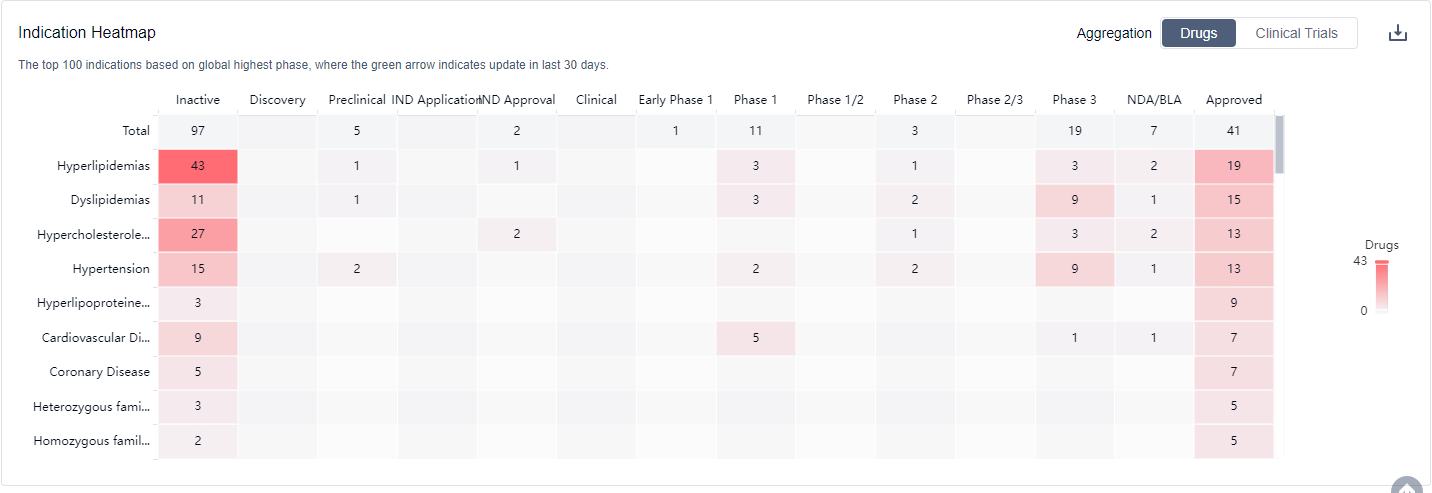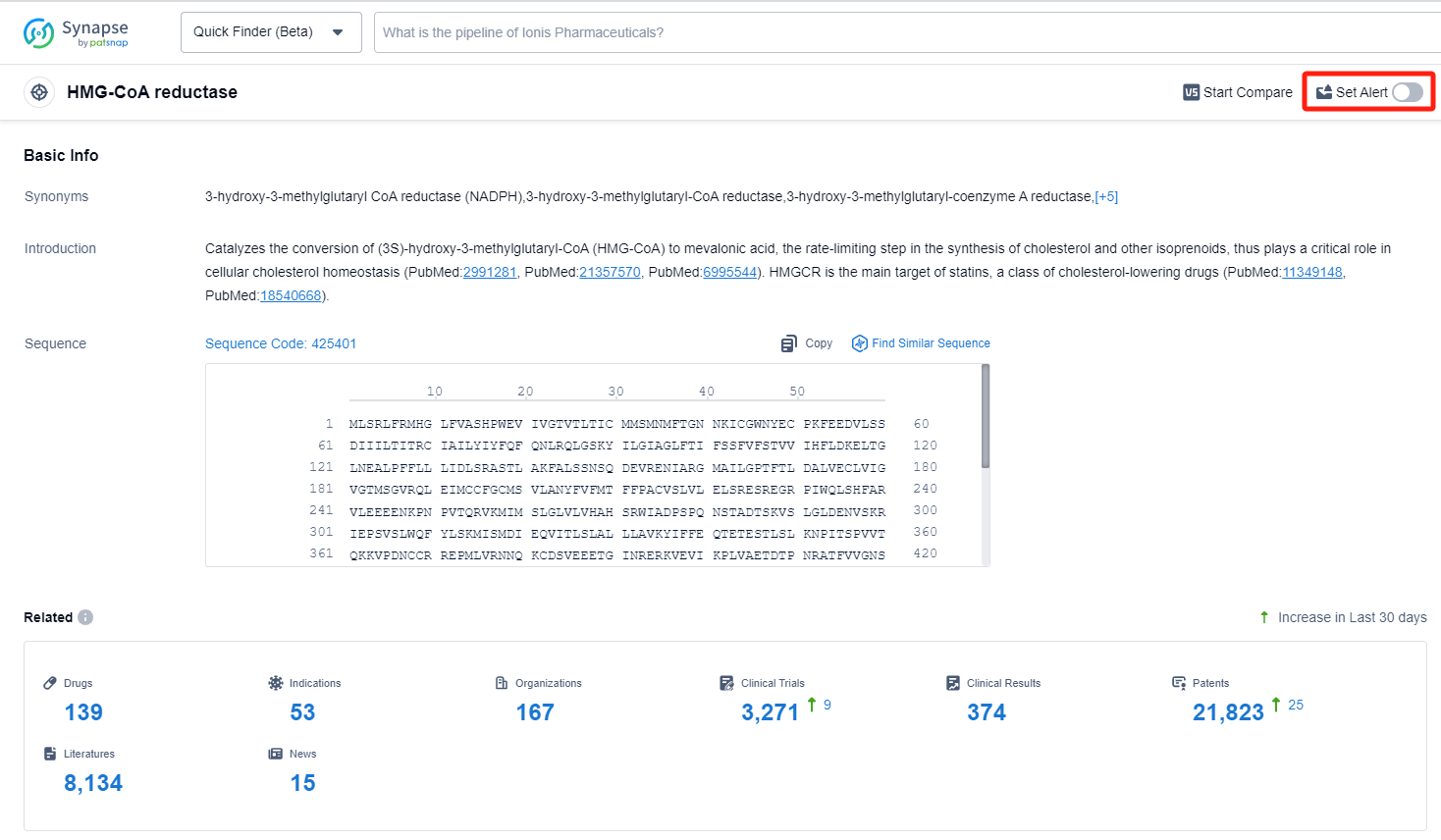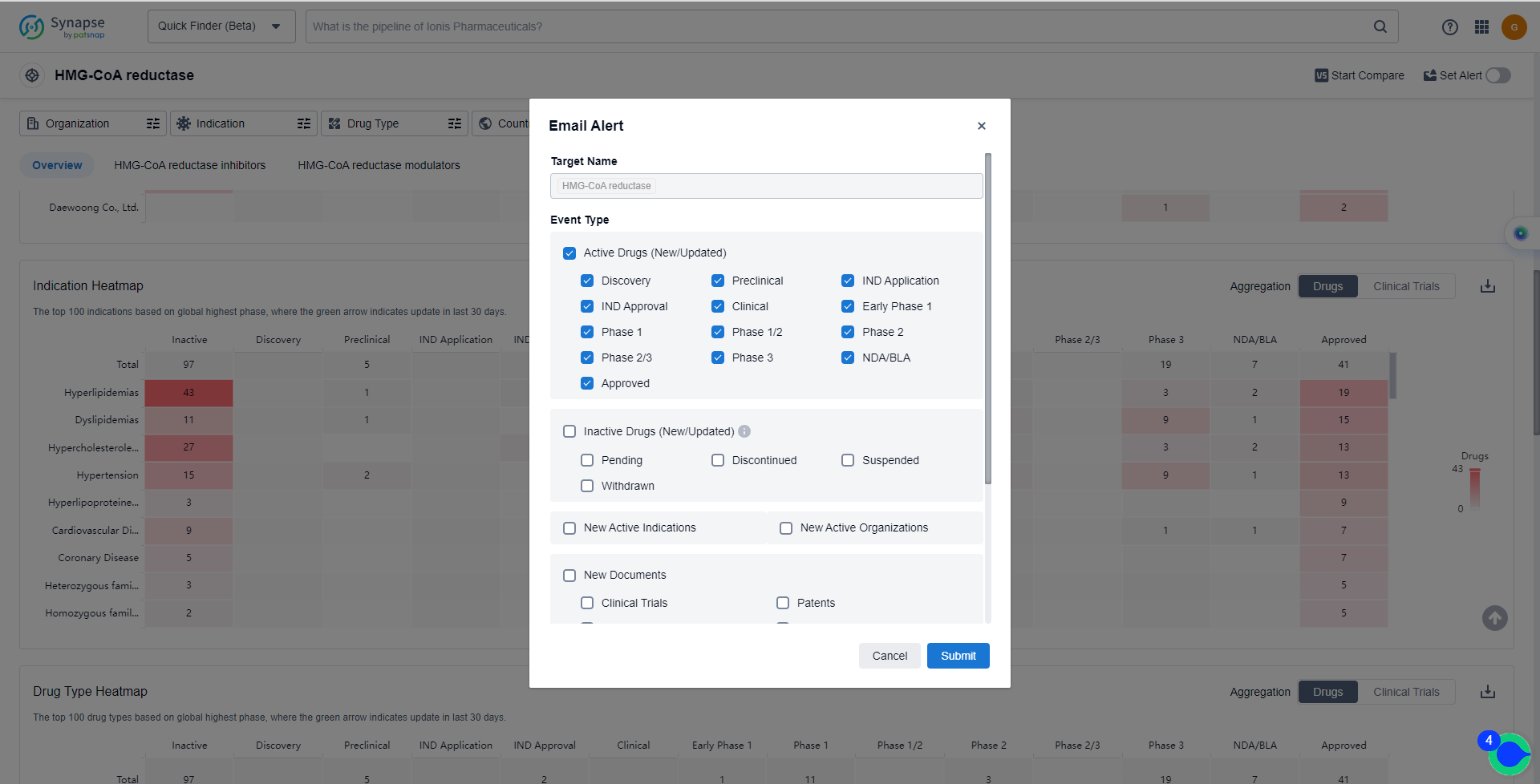What are HMG-CoA reductase inhibitors and how do you quickly get the latest development progress?
HMG-CoA reductase is an enzyme that plays a crucial role in the human body's cholesterol synthesis pathway. It is responsible for catalyzing the conversion of HMG-CoA (3-hydroxy-3-methylglutaryl coenzyme A) to mevalonate, a key precursor in the production of cholesterol. By regulating the activity of HMG-CoA reductase, the body can control the amount of cholesterol synthesized. This enzyme is the target of statin drugs, which inhibit its activity, leading to a reduction in cholesterol levels. Maintaining proper HMG-CoA reductase function is essential for maintaining cholesterol homeostasis and preventing the development of cardiovascular diseases.
HMG-CoA reductase inhibitors, also known as statins, are a class of drugs used to lower cholesterol levels in the body. The first statin, lovastatin, was approved by the FDA in 1987. Since then, several other statins have been developed, including atorvastatin, simvastatin, and rosuvastatin. Statins work by inhibiting the enzyme HMG-CoA reductase, which is involved in the production of cholesterol in the liver. By reducing cholesterol levels, statins can help prevent heart attacks, strokes, and other cardiovascular diseases.
In addition to their cholesterol-lowering effects, statins have been shown to have other beneficial effects, such as reducing inflammation and improving endothelial function. They have also been investigated for their potential to treat other conditions, such as Alzheimer’s disease, multiple sclerosis, and certain types of cancer.
The future of HMG-CoA reductase inhibitors looks promising, with ongoing research into new statins and other cholesterol-lowering drugs. Researchers are also investigating the potential of statins to treat other diseases, such as osteoporosis and autoimmune disorders. However, there are also concerns about the long-term effects of statin use, such as an increased risk of diabetes and liver damage. As such, further research is needed to fully understand the benefits and risks of these drugs.
The mechanism of action of HMG-CoA reductase inhibitors
HMG-CoA reductase inhibitors are a class of drugs commonly known as statins. From a biomedical perspective, these drugs are used to lower cholesterol levels in the blood. They work by inhibiting the enzyme HMG-CoA reductase, which plays a crucial role in the production of cholesterol in the liver. By blocking this enzyme, statins reduce the amount of cholesterol synthesized in the body, leading to a decrease in LDL (low-density lipoprotein) cholesterol, often referred to as "bad" cholesterol. Lowering LDL cholesterol levels can help prevent the development of cardiovascular diseases such as heart attacks and strokes. Additionally, statins may have other beneficial effects, such as reducing inflammation and improving the function of blood vessels. HMG-CoA reductase inhibitors are commonly prescribed to individuals with high cholesterol levels or those at risk of cardiovascular diseases.
Catalog of HMG-CoA reductase Inhibitors
The currently marketed HMG-CoA reductase inhibitors include:
- Ezetimibe/Pitavastatin Calcium
- Atorvastatin/Fimasartan
- Fenofibrate/Pitavastatin Calcium
- Amlodipine Besylate/Fimasartan Potassium Trihydrate/Rosuvastatin Calcium
- Amlodipine Besylate/Olmesartan Medoxomil/Rosuvastatin Calcium
- Atorvastatin Calcium Hydrate/Metformin Hydrochloride
- Atorvastatin/Hydrochlorothiazide/Aspirin/Enalapril
- Pitavastatin Magnesium
- Amlodipine/Losartan Potassium/Rosuvastatin Calcium
- Valsartan/Rosuvastatin Calcium
For more information, please click on the image below.
What is the purpose of using HMG-CoA reductase inhibitors?
HMG-CoA reductase inhibitors, are used to lower cholesterol levels in the body. They are used adjunctively with diet and exercise to treat and manage hypercholesterolemia (high cholesterol in blood) and for primary and secondary prevention of coronary heart disease. For more information, please click on the image below to log in and search.
How can I get the most recent advancements in HMG-CoA reductase inhibitors?
In the Synapse database, you can keep abreast of the latest research and development advances of HMG-CoA reductase inhibitors anywhere and anytime, daily or weekly, through the "Set Alert" function. Click on the image below to embark on a brand new journey of drug discovery!
